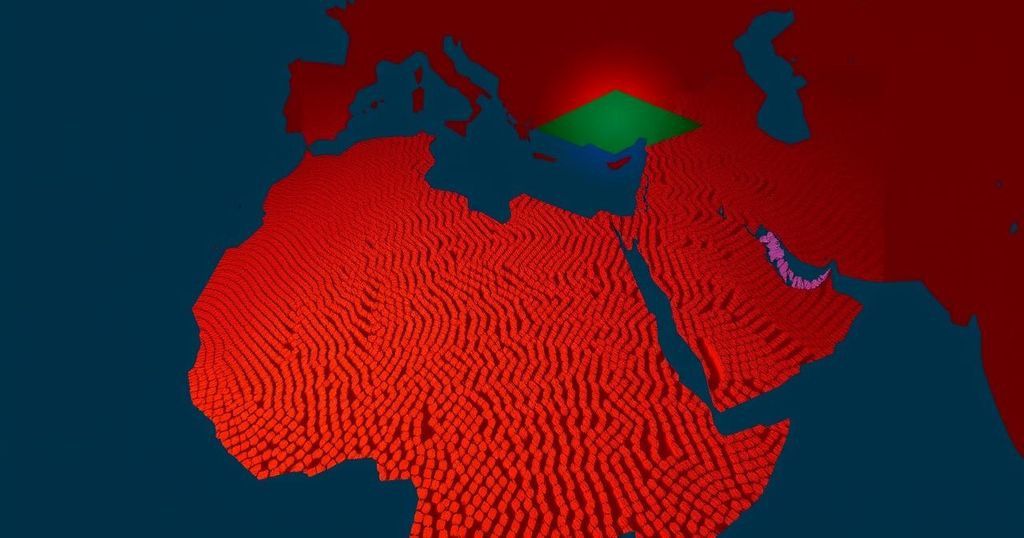World news
AFRICA, BBC, CIVIL WAR, CONFLICT, DARFUR, DAVID LAMMY, DMITRY POLYANSKIY, EUROPE/ASIA, HUMANITARIAN CRISIS, LAMMY, LINDA THOMAS - GREENFIELD, NEW YORK, NORTH AMERICA, RAPID SUPPORT FORCES, REFUGEE CRISIS, RSF, RUSSIA, SECURITY COUNCIL, SIERRA LEONE, SUDAN, UK, UN, UN SECURITY COUNCIL, UNITED STATES, US, WAR
Sofia Rodriguez
0 Comments
Russia Vetoes UN Ceasefire Resolution for Sudan Amid Ongoing Crisis
Russia has vetoed a UN resolution aimed at a ceasefire in Sudan, sparking criticism from the UK and US amid an ongoing humanitarian crisis that has killed thousands and displaced millions. The conflict arose from a power struggle between the Sudanese army and the Rapid Support Forces (RSF), highlighting the geopolitical implications of this civil war.
The United Nations Security Council witnessed a contentious session as Russia exercised its veto power against a UK-supported resolution aimed at establishing a ceasefire in Sudan. The resolution had garnered overwhelming support from other member states, with its backing by the UK and Sierra Leone. British Foreign Secretary David Lammy described Russia’s veto as a disgraceful obstruction amid a humanitarian crisis that has resulted in thousands of deaths and the displacement of millions in Sudan due to ongoing civil warfare. The conflict, which erupted in April 2022, involves fierce clashes between the Sudanese army and the Rapid Support Forces (RSF) as they vie for control. A recent draft resolution sought to halt the violence, urging both factions to engage in discussions for a national ceasefire while stressing the need for civilian protection amidst the ongoing turmoil. However, Sudan’s representative at the UN noted that critical clauses addressing support to the RSF and concerns over its classification as a terrorist group were omitted from the proposal. Despite a unified vote from the other 14 council members in favor of the resolution, the Russian veto demonstrated a significant geopolitical rift. Russian representatives argued that the resolution was a veil for Western interference in Sudanese sovereignty. This perspective was met with strong rebukes from the UK and US ambassadors, who accused Russia of further complicity in the ongoing violence impacting innocent civilians in Sudan. Amidst these tensions, Sudan’s ambassador pointed to the lack of provisions condemning external support for the RSF, particularly from the United Arab Emirates, spotlighting the complex nature of foreign involvement in the conflict.
The Sudanese civil war, which has lasted for 19 months, has developed into one of the world’s most severe humanitarian crises, leading to widespread devastation and mass displacement. The conflict originated from a power struggle between the established army and a powerful paramilitary group known as the Rapid Support Forces (RSF). Alarming reports indicate tens of thousands of deaths, with over 11 million individuals uprooted from their homes, compelling the international community to intervene.
In conclusion, the recent veto by Russia of a proposed ceasefire resolution in the UN Security Council has reaffirmed the complexities and geopolitical tensions surrounding the Sudan conflict. With accusations of obstructing humanitarian efforts and allegations of foreign interference escalating, the plight of the Sudanese people remains critical. Moving forward, international diplomatic efforts must navigate the delicate balance between state sovereignty and the urgent need for humanitarian assistance.
Original Source: www.bbc.co.uk




Post Comment